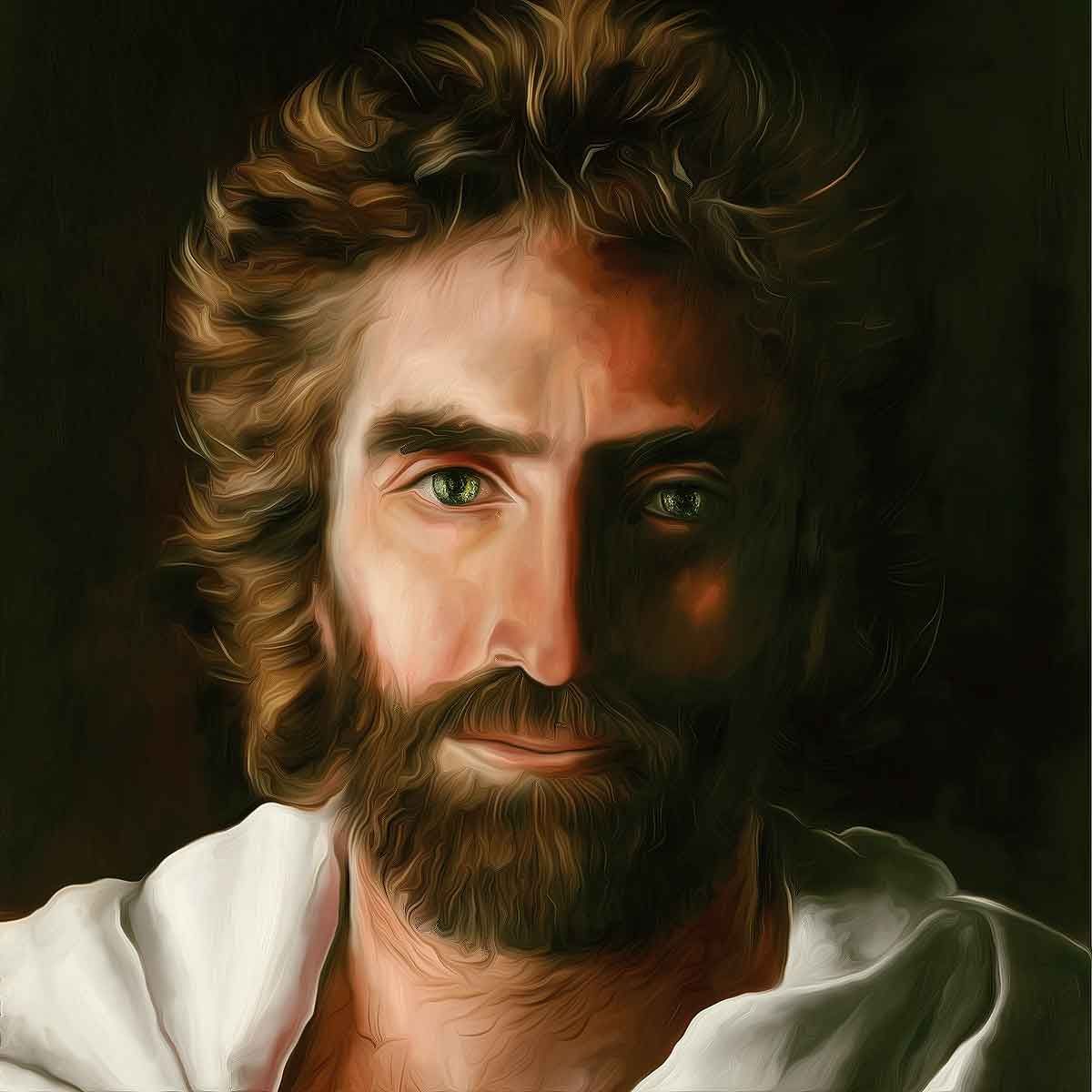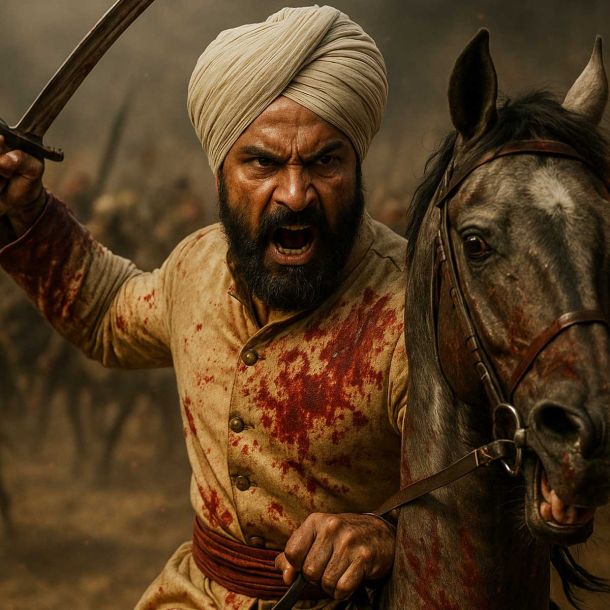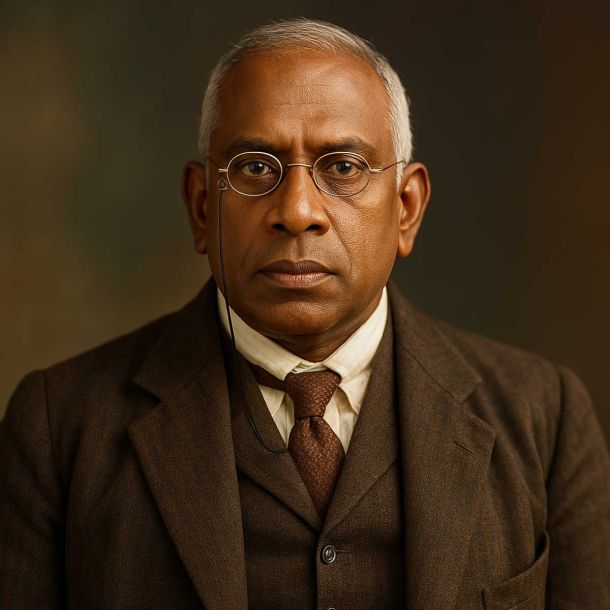MORE COVERAGE
"If chicken and geese pass a resolution about peace, the wolf is not convinced": Hindus have to know that Christianity & Islam ain't religions but imperialist ideologies whose appetite has been whetted by running roughshod over a large part of the world

Sita Ram Goel state a decades-old story: A young Muslim Sufi from Kashmir was telling us about the teachings of his guru (this was the word he used for his teacher) who had died some years earlier. Prããyãma was a prominent part of these teachings. This again was the term he used, though he did not know even the Hindi language, not to speak of Sanskrit.
The Sufi was a very simple and unassuming person. He had had no schooling. And he made his living by the humble occupation of a tailor. But we were fascinated by what he told us about the techniques used by his guru for his spiritual training. His language was straightforward without the slightest touch of pedantry.
As the conversation drew to a close someone from among us started to play a record of padãvali kîrtan by one of the few famous female specialists from Bengal. The Sufi was visibly moved by the pathos in Radhas pining for Sri Krishna who had left Vrindavana for Mathura. Soon after the music stopped, he exclaimed, Aisã gãnã hamnê êk hazãr baras bãd sunã (I have heard this sort of music after a thousand years). His eyes were brimming with tears which he was trying to hide.
We were amazed. He was in his thirties. He could not have been in this world a thousand years ago. What did he mean by that statement? We requested him to explain. He said in a voice full of innocence: Pahle Manam mêñ sunã hogã (I must have heard it in an earlier life).
I became agog with curiosity. He was talking of transmigration. So I asked him, Ãp kyã is zindgî sê pahlê Manam kî bãt mãnatê hain (Do you believe in a birth before this present life)?
The Sufi seemed to be somewhat annoyed. He asked a counter-question in a tone that had a touch of temper: Ãp mazhab kã saZãl kyoñ uThãtê hain (Why are you raising a theological controversy)?
I was puzzled by his reply, as was everybody else. I had not the slightest intention to annoy him. He was our guest. I had asked the question out of sheer curiosity. So I came forward with a clarification, and said, SûfîMî, ãp musalmãn hain. Islãm êk hî Manam mãnatã hai. Ãpnê pahle Manam kî bãt kahî, isliyê saZãl uThãyã thã (You are a Muslim. Islam recognizes only one life. You talk about an earlier life. That is why I had asked the question).
He relaxed and explained: Mazhab tõ Zahî bãt kahtã hai. Lekin maiñ tõ rãz kî bãt kah rahã thã (It is true that theology says that. But I was talking of the esoteric way).
We were surprised by this distinction. This was a new revelation to us - this separation of esoterism from theology. The sufi continued: Rãz kî bãt ham sab kê sãmanê nahîñ kahtê. Yeh tõ maiñ ãp logoñ se kah rahã thã (We do not talk of the esoteric way before everybody. It is only to you people that I was talking about it).
All of us asked simultaneously: Kyoñ (Why)?
The sufî said, Woh log (those people) and without completing the sentence he put the edge of his outstretched palm on his throat and moved it across. He was trying to convey that those people would cut his throat.
We asked him about those people. Who were they? He did not name any. But he became gloomy. It was obvious that he did not like to continue the dialogue, which we dropped immediately.
I was sure in my mind that nobody was going to cut his throat these days even if he proclaimed publicly what he believed privately. Times had changed. Moreover, he was a citizen of India, not of an Islamic theocracy. Yet the alarm in his voice was unmistakable.
I knew how Mansur al-Hallaj had been tortured to death by an Islamic state prompted by Islamic theologians for saying that he himself was the
HaTT (Truth). But that was all. I had not yet read any detailed history of Sufism, nor compared or contrasted the doctrines of Sufism with the dogmas of prophetic Islam. It was years later when I made such a study and came to know of the rishi tradition in Kashmir Sufism, that I was suddenly reminded of that talk with the young Sufi that day. He was obviously referring to the tradition of terror which had silenced the sups of the rishi tradition and forced them to keep in their breasts the best of their knowledge. The memory of that terror, it seemed, was still intact in the mind of this Sufi.
|
Genesis and Character of Christianity
Some historians in the West have serious doubts about the very existence of a man called Jesus Christ.And almost all historians agree that if he existed at all, nothing can be known about his person or teaching because all contemporary sources, Christian and non-Christian, are either silent or unreliable regarding the subject. Thus all we have is the Jesus of the Gospels which are now regarded as theological statements rather than a record of historical events. And Jesus of the Gospels is a questionable character. He makes tall claims about himself and curses all those who do not accept those claims. He denounces his own people as sons of the Devil and killers of prophets.
In due course, Christian theology came to proclaim that Jesus was the only-begotten son of the only true god; that he had been sent down in order to wash with his own blood the sins of mankind by mounting the cross; that he had risen from the dead on the third day and appeared to his apostles in flesh and bones; that he was the same as his father whose divinity he shared in full; that those who accepted him as the only savior had all their sins washed by his blood; that he had entered his apostles as the holy ghost and entrusted them with the mission of saving all mankind from eternal hell- fire; that the Church founded by the apostles and joined by the converts was his body and bride; and that the whole world had been mandated to the Church by the father and the son and the holy ghost.
|
What one finds striking about these ridiculous statements is that none of them can stand the test of human reason or experience. The Church declares them to be mysteries beyond the reach of human understanding. The apostles had tried to sell these mysteries to the Jews in Jerusalem. The only response they met was a dismissal with contempt. Next, they tried these mysteries on Jewish communities settled in Syria, Asia Minor, and Greece. They had some small success but most of the time met with considerable resistance. Finally, they took this merchandise to the metropolitan mart in Rome where their business found some firm footing for the first time. It was in Rome that the methods of missionary salesmanship matured over a period of time. The structure of the Roman empire provided a model for the structure of the Church. The missionaries got busy building a state within the state.
In the next two centuries, the Church became a rich and powerful organization with members in many leading families of Rome. It found many adherents among politicians who wielded power, among military commanders who were superstitious or in need of political support, and among merchants who had money but no brains for philosophical questions.
The mother of emperor Severus (222-235 AD) became a Christian. So did emperor Philip the Arabian (244-249 AD). Helena, the mother of Constantine, was also a Christian convert. Now the Church extended the Divine Right to rule as a despot to anyone who was prepared to declare Christianity as the sole state religion and suppress all pagan religions. Constantine who wanted to secure a dynastic succession for his family - a practice unknown to Roman politics so far - saw his opportunity in this new doctrine, and proclaimed in favor of the Church. The common people in Rome resisted this royal renegade. So he removed his capital from Rome to Byzantium which was renamed Constantinople.
|
The precedent set by Constantine in consolidating a dynastic despotism with the help of the Church was copied by many crowned heads all over Europe in subsequent centuries. The king in pagan societies was only the first among equals. The Church enabled him to become an unbridled autocrat who derived his authority not from the community over which he ruled but from God Almighty. The conflicts which developed between these autocrats and the powerful Church with a Pope at its head, came much later after the common people all over Europe had been enslaved and deprived of their traditional institutions which safeguarded their fundamental freedoms. For quite some time, the Church cooperated with the kings to convert the common people everywhere into hewers of wood and drawers of water.
This was one part of the story. Another was the large-scale destruction of ancient religions all over Europe, Asia Minor, and North Africa where the Church spread its tentacles with the help of despotic rulers. All pagan schools were closed, all pagan temples were demolished or converted into churches, and all pagan images were publicly defiled and destroyed. Pagan books were burnt and pagan priests were killed, mostly by Christian monks who led Christian mobs after lecturing them into a fevered frenzy. That is how Christianity triumphed over pagan religions and societies - not by the power of its moral or spiritual superiority or the logic of its doctrines, but by the power of the sword wielded by despicable despots.
|
Genesis and Character of Islam
Muhammad followed in the footsteps of Jesus in making the same sort of claims for himself, cursing his own people in the choicest language of monotheism, and threatening them with slaughter. He, however, did not have to struggle against a centralized state when he found that his prophethood had no attraction for the people of Mecca. He migrated to Medina which was more receptive to monotheism because of a large presence of Jews in that town, and emerged as a powerful potentate. He ended by exiling or killing en masse the Jewish population which resisted him as soon as he came out in his true colors. Meanwhile, he had amassed much wealth by plundering merchant caravans and scattered Arab settlements.
He created the nucleus of a standing army out of the toughs and desperados who flocked to him in increasing numbers for committing crimes and sharing the loot. In short, he built the apparatus of a military state in Medina and used it for imposing his closed creed on the tribal settlements of Arabia by means of armed force. The doctrines of Islam were tailored to the needs of this galloping tyranny and sold with the help of the sword. And the sword was stamped with the name of an almighty Allah in whose service the ancient religion and culture of Arabia were destroyed root and branch.
|
The mistake made by the Hindu Society
Hindu society has to understand very clearly that what it is faced with in the form of Christianity and Islam are not religions but imperialist ideologies whose appetite has been whetted by running roughshod over a large part of the world.
Hindu society is making a serious, almost fatal mistake, in appealing to these ideologies in the name of reason and morality which are supposed to accompany religion. This sort of appeal is bound to fail because it falls on deaf ears. The menace has to be met by methods and means which are suited to the nature and magnitude of the menace. Hitler had said that if the chicken and geese pass a resolution about peace, the wolf is not convinced. There is little chance that Hindu society will ever be able to contain Christianity or Islam if it continues to regard these aggressive and imperialist ideologies as religions and extend tolerance to them.
- The Situation at Present
- Sanãtana Dharma Versus Prophetic Creeds
- The Spiritual Centre of Hindu Society
- Hindu Spirituality Versus Monotheism
- The Basis of Universal Spirituality
- Revival of Universal Spirituality
- Starting Point of Universal Spirituality - Defence of Hindu Society
- Christianity and Islam: Christianity and Islam: Ideologies Of Imperialism
REFERENCES:
Defence of Hindu Society - Sita Ram Goel - Voice of India, New Delhi
 Support Us
Support Us
Satyagraha was born from the heart of our land, with an undying aim to unveil the true essence of Bharat. It seeks to illuminate the hidden tales of our valiant freedom fighters and the rich chronicles that haven't yet sung their complete melody in the mainstream.
While platforms like NDTV and 'The Wire' effortlessly garner funds under the banner of safeguarding democracy, we at Satyagraha walk a different path. Our strength and resonance come from you. In this journey to weave a stronger Bharat, every little contribution amplifies our voice. Let's come together, contribute as you can, and champion the true spirit of our nation.
 |  |  |
| ICICI Bank of Satyaagrah | Razorpay Bank of Satyaagrah | PayPal Bank of Satyaagrah - For International Payments |
If all above doesn't work, then try the LINK below:
Please share the article on other platforms
DISCLAIMER: The author is solely responsible for the views expressed in this article. The author carries the responsibility for citing and/or licensing of images utilized within the text. The website also frequently uses non-commercial images for representational purposes only in line with the article. We are not responsible for the authenticity of such images. If some images have a copyright issue, we request the person/entity to contact us at satyaagrahindia@gmail.com and we will take the necessary actions to resolve the issue.
Related Articles
- "In public realm, secularism should not concede a single inch to religious intrusions": India never knew a theocratic state till Islam entered Bharat, Hindu Dharma always was a pluralistic religion till genesis of Nehruvian Secularism for mystic reasons
- When true Historian Sita Ram Goel's Challenge Became a Nightmare for Marxist Historians
- Asst. Professor of Comparative Literature at Columbia University, Gil Anidjar is an Anti-Israel activist, apologist for Islamic radicalism and identifies “good teaching” with pro-Palestinian activism: The 101 Most Dangerous Academics in America
- The Character of Muslim Rule in India - The Story of Islamic Imperialism in India
- "Each era, a stitch in time's tapestry": India's ancient timeline - From Svayambhuva Manu to the Mahabharata, new research using archaeo-astronomy redefines historical chronology, challenging established epochs and reshaping our understanding of the past
- "What one loves in childhood stays in the heart forever": One of the most cherished shows of our childhood, Malgudi Days was aired during late 80-90s based on short story collection by RK Narayan that had all elements to unite family for television time
- In The Name of National Integration - The Story of Islamic Imperialism in India
- In Search of a Culprit - Genesis and Growth of Nehruism Vol 1
- "Fighting for Islam, that is not suicide. They kill themselves for Islam": Ihsan Bagby, Prof. of Islamic studies at Kentucky University declared that Muslims can never be full citizens of the US as they can never commit to its institutions & ideologies
- The Residue of Christianism - Hindu Society Under Siege
- The United Front of Hostile Forces - Hindu Society Under Siege
- Hindu seers and sages could tap sources of universal spirituality because they did not start with an a priori assumption of an Almighty God whom man had to fear and obey in awe and objection - Defence of Hindu Society
- The Situation at Present - Defence of Hindu Society
- The Basis of Universal Spirituality - Defence of Hindu Society
- Purification - Understanding Islam through Hadis - Religious Faith or Fanaticism
Related Articles
Twitter Coverage
Satyaagrah
Written on
Satyaagrah
Written on
Satyaagrah
Written on
Satyaagrah
Written on
Satyaagrah
Written on




















